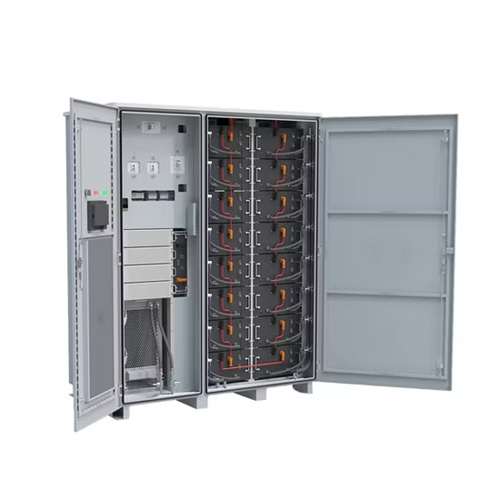Microgrid to Grid

Microgrid Technology Is Transforming the Energy Grid
Microgrid Components. Like a traditional grid, energy generation is the heart of a microgrid system. This can range from diesel generators and batteries, the most common sources at the moment, to power generated by renewable resources

An Introduction to Microgrids: Benefits, Components,
A microgrid is a local energy grid that can operate independently or in conjunction with the traditional power grid. It is comprised of multiple distributed energy resources (DERs), such as solar panels, wind turbines, energy storage

What Is a Microgrid? Definition, Applications, and
A microgrid can stand on its own ("behind the meter") or can be connected to the larger grid ("in front of the meter") but have the capability of keeping electricity flowing in the case of

Possibilities, Challenges, and Future Opportunities of
Microgrids are an emerging technology that is becoming increasingly popular in developed and developing countries. The microgrid can operate in grid-connected, islanded, and hybrid modes . In grid-connected

Microgrid: A Pathway for Present and Future Technology
"A microgrid is a collection of interconnected loads and dispersed sources of energy that operates as a unified, performance contributes to the grid and is contained within well delineated

Solar Integration: Distributed Energy Resources and
Microgrids are localized electric grids that can disconnect from the main grid to operate autonomously. Because they can operate while the main grid is down, microgrids can strengthen grid resilience, help mitigate grid disturbances, and

Microgrids: A review of technologies, key drivers, and outstanding
Although grid-tied microgrid customers will likely stay connected to the grid for the foreseeable future, only islanding in the case of utility grid failure, self-consumption of microgrid

A brief review on microgrids: Operation, applications, modeling, and
In islanded mode, there is no support from grid and the control of the microgrid becomes much more complex in grid-connected mode of operation, microgrid is coupled to the utility grid

What is a Microgrid? | Microgrid Knowledge
A microgrid is a self-sufficient energy system that serves a discrete geographic footprint, such as a college campus, hospital complex, business center or neighborhood. Within microgrids are one or more kinds of

A brief review on microgrids: Operation, applications,
Microgrid is an important and necessary component of smart grid development. It is a small-scale power system with distributed energy resources. To realize the distributed generation potential, adopting a system where the associated loads

What Is a Microgrid?
The U.S. Department of Energy defines a microgrid as a group of interconnected loads and distributed energy resources within clearly defined electrical boundaries that acts as a single controllable entity with respect to the grid. 1 Microgrids

Solar Integration: Distributed Energy Resources and Microgrids
This is called islanding. Electrical systems that can disconnect from the larger grid, engaging in intentional islanding, are often called microgrids. Microgrids vary in size from a single-customer

Microgrids: 10 Key Questions Answered | Schneider
A microgrid enables your organization to remain powered by seamlessly switching to on-site generation or storage. If the grid fails, a microgrid controller can sense the disruption, disconnects from the utility, activates

Blockchain Use in Microgrids: Applications, Benefits, and
The BMG marketplace is a grid-connected microgrid, meaning that it derives power from the main grid as well as distributed energy resources. The transactive energy platform uses blockchain

6 FAQs about [Microgrid to Grid]
What are microgrids & how do they work?
Microgrids are local power grids that can be operated independently of the main – and generally much bigger – electricity grid in an area. Microgrids can be used to power a single building, like a hospital or police station, or a collection of buildings, like an industrial park, university campus, military base or neighbourhood.
What is a microgrid energy system?
A microgrid is a self-sufficient energy system that serves a discrete geographic footprint, such as a college campus, hospital complex, business center or neighborhood. Within microgrids are one or more kinds of distributed energy (solar panels, wind turbines, combined heat and power, generators) that produce its power.
Are microgrids self-contained?
But because microgrids are self-contained, they may operate in “island mode,” meaning they function autonomously and deliver power on their own. They usually are comprised of several types of distributed energy resources (DERs), such as solar panels, wind turbines, fuel cells and energy storage systems.
Why is microgrid important in Smart Grid development?
Microgrid is an important and necessary component of smart grid development. It is a small-scale power system with distributed energy resources. To realize the distributed generation potential, adopting a system where the associated loads and generation are considered as a subsystem or a microgrid is essential.
What is the difference between a microgrid and a generator?
While traditional generators are connected to the high-voltage transmission grid, DER are connected to the lower-voltage distribution grid, like residences and businesses are. Microgrids are localized electric grids that can disconnect from the main grid to operate autonomously.
Can microgrids bring electricity to all?
Most generate their own power using renewable energy like wind and solar. In power outages when the main electricity grid fails, microgrids can keep going. They can also be used to provide power in remote areas. A nun in the Democratic Republic of Congo is showing the world how microgrids can bring electricity to all.
Related Contents
- United Kingdom smart grid and microgrid
- Grid and microgrid atomizers
- Microgrid to Grid
- Renewable energy microgrid U S Virgin Islands
- Lebanon home microgrid
- Microgrid presentation Hungary
- Microgrid meaning Syria
- Norfolk Island microgrid lecture
- Guadeloupe standard microgrid
- Cleanspark microgrid Uzbekistan
- Microgrid software Brazil
- Eaton microgrid Iceland